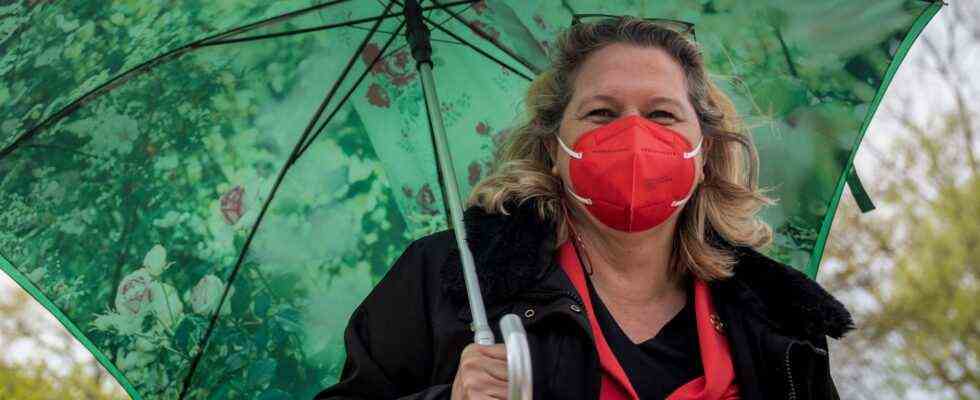As of: 31.10.2021 02:21 a.m.
The old federal government is only executive in office. Does this also change Germany’s role at the climate summit in Glasgow? And what does that mean for the coalition negotiations?
Nicole Wilke knows what to expect. This will be their 17th climate conference. This time, too, the head of unit from the Ministry of the Environment will once again lead the European negotiating team. Sleep? “For the first week: four hours a night. That’s a good approximation.” In the final spurt of the conference, sleep will be even less. “The adrenaline helps me,” says Wilke. She doesn’t drink stimulants like coffee or mate.
In order to avert the worst consequences of global warming, Wilke and many others in Glasgow will again spend numerous nights. The fact that Germany is currently without a real government – only has one that will keep watch until the new one takes over at some point – that does not change much for the negotiations at the climate conference, says Wilke.
Conference in transition periods
Environment State Secretary Jochen Flasbarth also declares: “Germany is not in a lame duck situation”. The government is capable of acting in every respect.
A climate conference in transitional periods is nothing new. In 2017, for example, the Union, FDP and the Greens negotiated a Jamaica alliance, while the old Union and SPD government represented Germany at the climate summit in Bonn.
The central point is that Germany does not negotiate as a single state at climate conferences, but as part of the EU. For the summit in Glasgow, the EU states have also defined their common positions in advance, for example on the controversial Article 6 of the Paris Climate Agreement.
What are the parties saying?
It is about how climate protection projects are offset in other countries. An example: If Germany gives money to Brazil so that Brazil protects its rainforest instead of burning it down – who will officially be credited with the CO2 saved? Both countries? The EU wants to prevent that, because it only helps the climate once and countries could otherwise artificially make up for their climate protection.
What do the parties that are likely to form the new government think about this? With Svenja Schulze, the SPD has already provided the German environment minister and thus helped shape the current German and European line of climate policy.
No “nonsense” with Article 6
In its election manifesto, the FDP demands that projects in other countries be taken into account, but its climate protection expert Lukas Köhler also says: “It is all the more important that Article 6 is properly negotiated. That the opportunities to make nonsense with it are minimized.”
No nonsense, that means, for example: no double counting, no watering down of climate protection through Article 6. That is what the Greens are calling for. “On the international level, the domestic political differences in climate policy are blurring,” says Environment State Secretary Flasbarth.
Increased pressure on coalition negotiations
The climate policy spokeswoman for the Greens, Lisa Badum, expects the climate conference to also increase pressure on the coalition negotiations, which are taking place in Berlin at the same time. “According to the motto: The world community is taking a step forward here, we are waiting for Germany to see something happen there too.” If other states publicly declare at the climate conference that they want to get out of coal faster, for example, to get away from the classic combustion engine faster, then – the Greens hopes – this could put pressure on the SPD and FDP.
What can a climate conference achieve?
This draws attention to the question of what a climate conference – also known as COP (Conference of the Parties) in technical jargon – can actually achieve. And what not. “The public expects the COP to save the world climate,” says Wilke, the experienced chief negotiator. “But she can’t do that.”
A climate conference could again and again formulate the political expectation of states that they have to do more in terms of climate protection. A conference can define sets of rules. “But the act must be done by the states themselves.”

